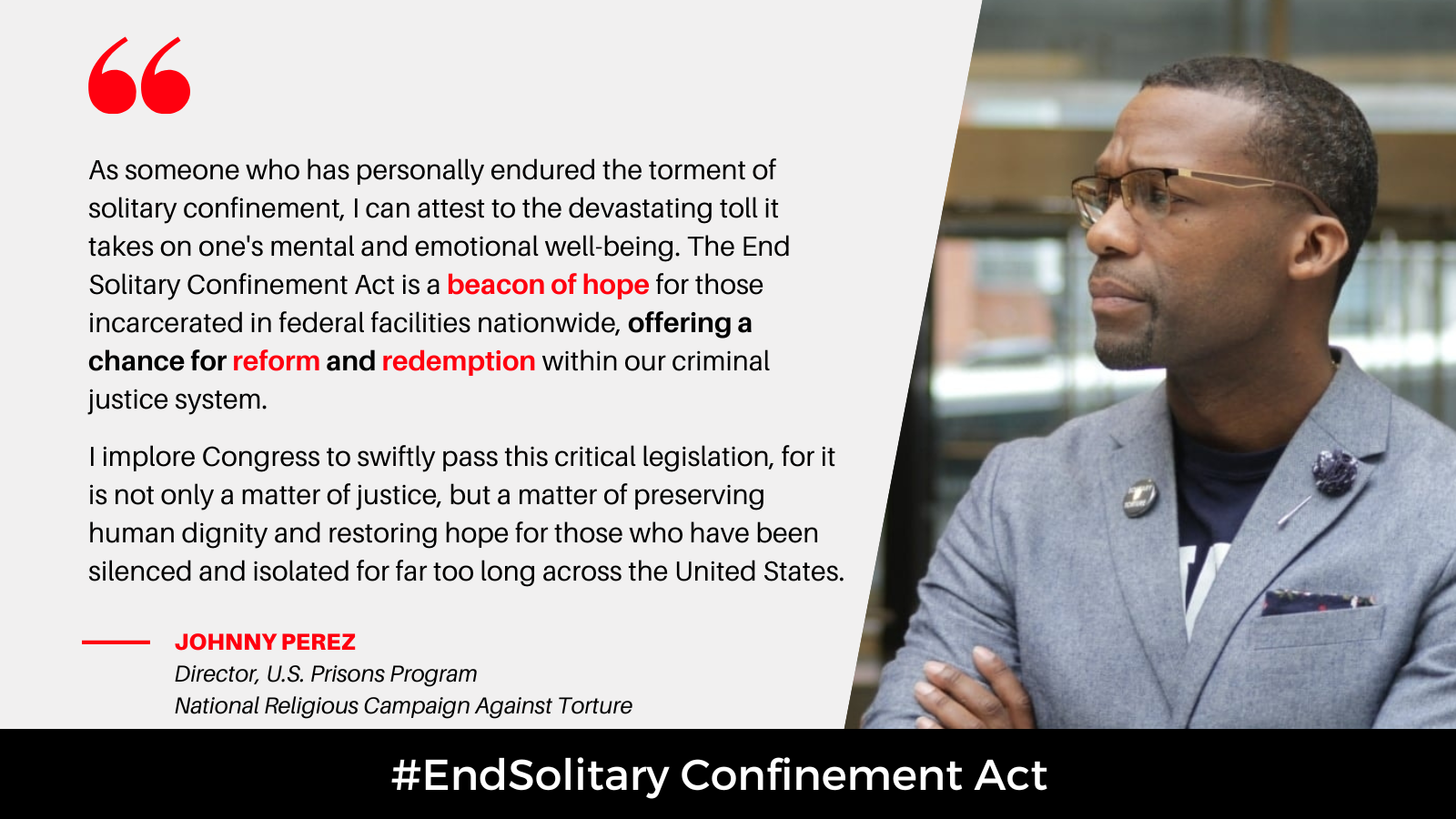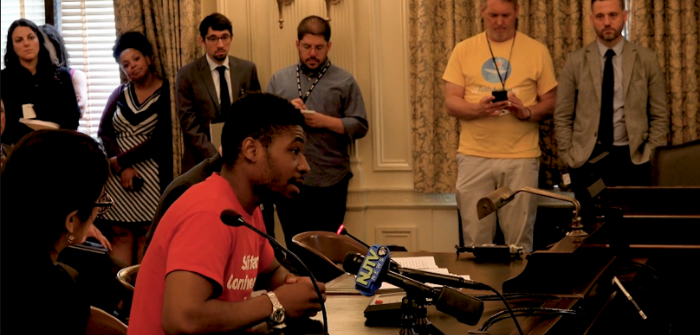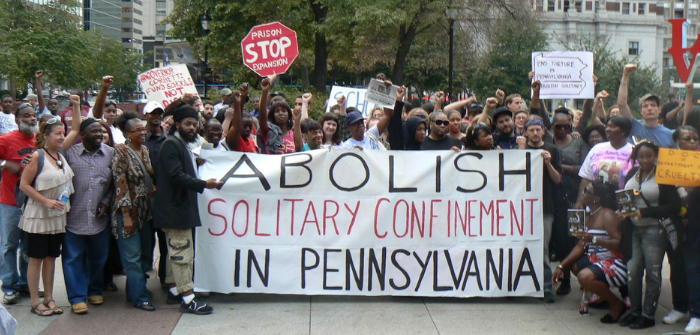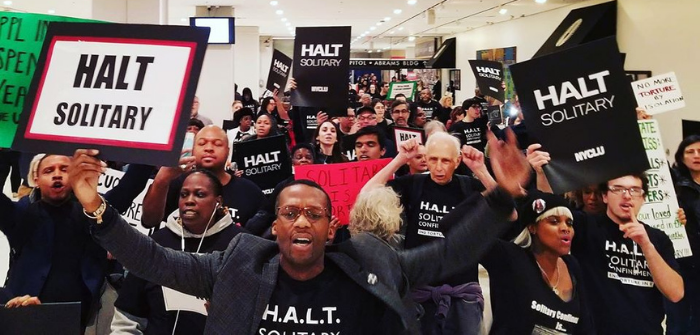
Add Your Support to the End Solitary Confinement Act
The End Solitary Confinement Act, introduced in the U.S. House and Senate in 2023, is a groundbreaking bill that would end solitary confinement in federal prisons, immigration detention centers, and other federal and federally contracted facilities. You can help build support for the bill by writing to your Members of Congress to ask them to cosponsor the End Solitary Confinement Act.
Solitary Confinement in Federal Prisons
On June 7, 2021, the Federal Anti-Solitary Taskforce (FAST), a coalition of which the National Religious Campaign Against Torture (NRCAT) is a member, released the first-ever Blueprint for Ending Solitary Confinement by the Federal Government. This document outlines how the United States government can use executive, administrative, and legislative action to end the torture of solitary confinement in federal custody, including in Bureau of Prisons facilities, U.S. Marshals Service facilities, and immigration detention.
Currently, more than 10,000 people - representing nearly 8 percent of the total federal prison population - are in some form of solitary confinement in federal BOP facilities on any given day. This is a substantially higher percentage than the national average in state prison systems, and even higher than in the federal BOP a decade ago, before reductions were made under the Obama administration.
In federal custody, as in state and local jurisdictions across the country, solitary and other forms of restrictive housing and practices are disproportionately inflicted on Black people, Latinx people, Indigenous people, and other people of color, as well as transgender and gender non-conforming people, people with mental health needs, and young people. Across the country, since the pandemic began, there has been a 500 percent increase in the use of solitary confinement, with more than 300,000 people being held in these cruel and inhumane conditions since June 2020 in the federal and state systems.
The Blueprint for Ending Solitary Confinement by the Federal Government calls for the U.S. government to:
- End all forms of solitary confinement in federal custody, other than brief lock-ins measured at most in hours to de-escalate emergency situations, or true medical quarantine in units overseen by medical staff;
- Ensure that all separation/alternatives to solitary, regardless of what they are called, involve access to full days out-of-cell (at least 14 hours per day) and meaningful programming and activities (at least 7 hours per day) without restraints and with at least several other people in group spaces conducive to meaningful human engagement;
- Enhance due process protections, using neutral decision-makers and representation at hearings; and
- Create oversight and enforcement mechanisms, including ensuring people wrongfully placed in solitary have legal recourse, as well as mandating data collection, independent oversight by an Ombudsperson, media, and community stakeholders, and incentives for states and localities to end solitary and create safer and more effective interventions.
In February 2015, the federal Bureau of Prisons released the report "Federal Bureau of Prisons: Special Housing Unit Review and Assessment," requested following a 2012 congressional hearing on human rights, fiscal and public safety consequences of solitary confinement. For information about the report, see Solitary Watch's "Audit of Solitary Confinement in Federal Prisons: An Inside Job Reaches Foregone Conclusions".
Learn more about solitary confinement here.








